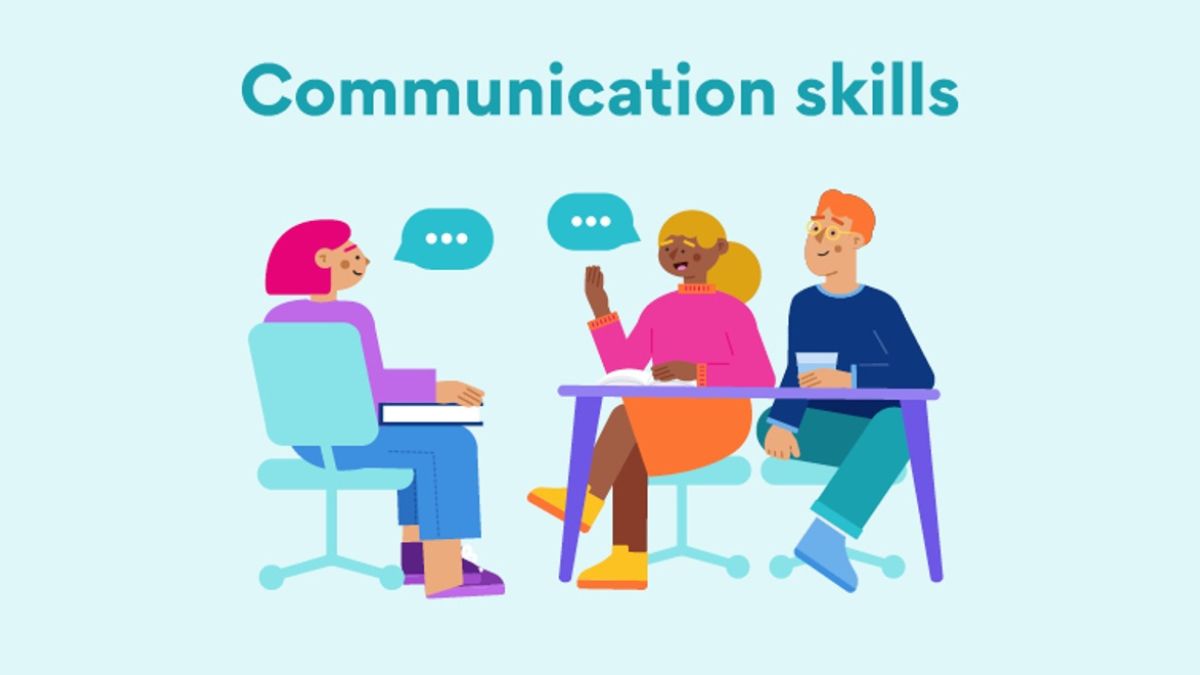
How to Find Quality Home Tutors for Your Kids
Finding a quality home tutor for your child can be a transformative step in their educational journey. A good tutor can provide personalized attention, cater to your child’s unique learning style, and help them excel academically. However, selecting the right tutor involves careful consideration and research.
Here’s a comprehensive guide on how to find quality home tutors for your kids.
Table of Content
Why Should I Consider Hiring a Home Tutor for My Child?
How to Find Quality Home Tutors for Your Kids
What Qualifications Should I Look for in a Home Tutor?
What Qualifications Should I Look for in a Home Tutor?
How Can I Ensure My Child’s Safety with a Home Tutor?
How Do I Evaluate the Effectiveness of the Tutoring?
Can Online Tutoring be as Effective as In-person Tutoring?
Who is a Home Tutor?
A home tutor is an educational professional who provides personalized instruction to students in the comfort of their own homes. The primary role of a home tutor is to offer one-on-one support to help students understand and master specific subjects or skills.
Why Should I Consider Hiring a Home Tutor for My Child?
Hiring a home tutor can provide numerous benefits for your child's education and overall development. Here are several compelling reasons to consider:
1. Personalized Attention
Tailored Learning Experience: Home tutors can customize their teaching methods and pace according to your child's individual learning style and needs. This personalized approach ensures that your child receives the specific support they need to understand complex concepts and improve their academic performance.
2. Improved Academic Performance
Focused Assistance: With one-on-one attention, tutors can quickly identify and address learning gaps, helping your child to better understand subjects they find challenging. This targeted support can lead to improved grades and a deeper comprehension of the material.
3. Flexible Scheduling
Convenient Learning: Home tutoring offers flexible scheduling options, allowing sessions to be arranged at times that fit your family's routine. This flexibility makes it easier to balance schoolwork with extracurricular activities and family commitments.
4. Enhanced Study Skills
Learning Strategies: Tutors can teach effective study techniques, time management, and organizational skills. These skills are essential for academic success and can help your child become a more independent and efficient learner.
5. Confidence and Motivation
Positive Reinforcement: Home tutors provide a supportive learning environment that encourages your child to ask questions and express difficulties without fear of judgment. This positive reinforcement can boost your child’s confidence and motivation to learn.
6. Exam Preparation
Focused Revision: Tutors can help your child prepare for important exams, such as WAEC, NECO, or JAMB, by reviewing key topics, practising past questions, and teaching exam strategies. This focused preparation can reduce exam anxiety and improve performance.
7. Addressing Special Needs
Specialized Support: If your child has special educational needs, a home tutor with expertise in this area can provide tailored support and resources to help them succeed academically.
8. Parental Involvement
Regular Updates: Tutors often keep parents informed about their child’s progress and areas needing improvement. This ongoing communication ensures that you are actively involved in your child's education and can support their learning at home.
9. Consistent Progress Monitoring
Regular Assessments: Home tutors can conduct regular assessments to monitor your child’s progress and adjust their teaching methods as needed. This continuous evaluation ensures that learning objectives are being met.
10. Safe Learning Environment
Comfort and Security: Home tutoring takes place in a familiar and comfortable setting, which can make your child feel more at ease and focused on learning. This safe environment is especially beneficial for children who may feel anxious or distracted in a traditional classroom.
How to Find Quality Home Tutors for Your Kids
1. Identify Your Child’s Needs
Before starting your search, it's crucial to understand your child’s specific needs. Consider the following:
- What subjects or areas does your child need help with?
- Is the tutoring for exam preparation, such as WAEC, NECO, or JAMB, or general academic improvement?
- What is your child’s preferred learning style (visual, auditory)?
Understanding these needs will help you find a tutor who can address them effectively.
2. Research and Recommendations
- Ask for Recommendations:
- Teachers and School Counselors: Speak to your child’s teachers or school counsellors. They often know experienced tutors who specialize in the subjects your child needs help with.
- Other Parents: Consult with other parents in your community or school. Personal recommendations can be very reliable.
- Online Tutoring Platforms:
- Tutoring Websites: Use platforms like ExamGuide Get Tutor which connect students with qualified tutors across Nigeria.
iii. Social Media and Forums:
- Parenting Groups: Join local parenting groups on Facebook or WhatsApp where parents often share information about tutors.
- Educational Forums: Participate in forums like Nairaland, which has sections dedicated to education where you can find recommendations.
3. Qualifications and Experience
When evaluating potential tutors, consider their qualifications and experience:
- Educational Background: Ensure the tutor has relevant academic qualifications. For example, a math tutor should have a degree in mathematics or a related field.
- Teaching Experience: Look for tutors with experience teaching the specific age group and subject your child needs help with. Experienced tutors are better at identifying and addressing learning gaps.
- Specialized Skills: If your child has special educational needs, find a tutor with experience or training in special education.
4. Interview Potential Tutors
Conduct interviews with potential tutors to assess their suitability:
- Teaching Style: Discuss their teaching methods and ensure they align with your child’s learning style. A good tutor should be adaptable and use various teaching strategies.
- Communication Skills: The tutor should communicate effectively and be able to explain concepts clearly and patiently.
- References: Ask for and check references from previous clients to gauge the tutor’s reliability and effectiveness.
- Trial Session: Arrange a trial tutoring session to observe how the tutor interacts with your child and whether they establish a good rapport.
5. Background Checks and Safety
Ensuring the safety of your child is paramount:
- Background Check: Conduct a thorough background check on the tutor, including verifying their qualifications and checking for any criminal record. Platforms like PrepClass and Tuteria often perform these checks for you.
- Professionalism: Look for signs of professionalism, such as punctuality, preparedness, and a clear tutoring plan.
- Monitoring: Regularly monitor the tutoring sessions, either by being present or by asking your child for feedback.
6. Set Clear Goals and Expectations
Once you select a tutor, set clear goals and expectations:
- Objectives: Outline specific academic goals you want your child to achieve, such as improving grades, understanding certain topics, or developing study skills.
- Schedule: Agree on a consistent tutoring schedule that fits both your family’s routine and the tutor’s availability.
- Progress Reports: Request regular updates on your child’s progress to ensure the tutoring sessions are effective.
7. Evaluate Progress and Adapt
Continuously evaluate the effectiveness of the tutoring:
- Feedback: Regularly discuss with your child how they feel about the tutoring sessions. Are they finding them helpful? Are they enjoying the learning process?
- Assessment: Periodically review your child’s academic performance to see if there is a noticeable improvement.
- Flexibility: Be open to making changes if the current tutoring arrangement isn’t meeting your child’s needs. This might involve finding a different tutor or adjusting the tutoring methods.
What Qualifications Should I Look for in a Home Tutor?
Selecting a qualified home tutor for your child is crucial to ensure they receive the best possible educational support. Here are the key qualifications and attributes to look for in a home tutor:
1. Educational Background
Relevant Degrees: Ensure the tutor has a strong academic background in the subject they will be teaching. For instance, a math tutor should ideally have a degree in mathematics or a related field. A tutor for younger children should have a solid understanding of primary education.
2. Teaching Experience
Proven Track Record: Look for tutors with significant teaching or tutoring experience, particularly with the age group and subject your child needs help with. Experienced tutors are more adept at identifying and addressing learning gaps and employing effective teaching strategies.
3. Subject Expertise
Deep Knowledge: The tutor should possess in-depth knowledge of the subject matter. This expertise ensures they can explain complex concepts clearly and answer any questions your child may have.
4. Specialized Skills
Special Education Training: If your child has special educational needs, find a tutor with training or experience in special education. Such tutors are equipped to provide the necessary support and adapt their teaching methods to suit your child's requirements.
5. Communication Skills
Clear and Effective: Good tutors must be able to communicate concepts in a way that is easy to understand. They should be patient, articulate, and capable of engaging your child in the learning process.
6. Adaptability
Flexible Teaching Methods: Every child learns differently. A qualified tutor should be adaptable, employing various teaching techniques to match your child's learning style and needs.
7. Positive References and Reviews
Reputation: Ask for and check references from previous clients. Positive reviews and testimonials can provide insight into the tutor’s effectiveness, reliability, and ability to connect with students.
8. Professionalism
Punctuality and Preparedness: Look for tutors who demonstrate professionalism through their punctuality, preparedness, and respectful interaction with both you and your child. They should have a clear plan for each session and be organized.
9. Passion for Teaching
Genuine Interest: A tutor who is passionate about teaching and genuinely interested in helping students learn will be more effective and engaging. Their enthusiasm can inspire and motivate your child.
10. Background Check
Safety and Security: Conduct a thorough background check to ensure the tutor has a clean record. This is especially important for home tutors who will spend time alone with your child.
11. Technological Proficiency
Online Tutoring Capabilities: If you are considering online tutoring, ensure the tutor is proficient with the necessary technology and can effectively conduct virtual lessons using digital tools and resources.
How Can I Ensure My Child’s Safety with a Home Tutor?
Ensuring your child's safety when hiring a home tutor is paramount. Here are some key steps you can take to ensure a secure and trustworthy tutoring arrangement:
1. Conduct a Thorough Background Check
Verify Qualifications: Ensure the tutor has the appropriate academic qualifications and teaching credentials. Request copies of their certificates and degrees.
Criminal Record Check: Perform a criminal background check to ensure the tutor has no history of criminal activity. Many online tutoring platforms conduct these checks as part of their vetting process.
2. Check References and Reviews
Contact Previous Clients: Ask for references from previous clients and speak to them directly to get an idea of the tutor’s reliability and behaviour.
Online Reviews: Look for reviews and testimonials on tutoring platforms or forums to gauge the tutor’s reputation and past performance.
3. Interview the Tutor
Personal Meeting: Arrange a face-to-face meeting before hiring. This helps assess their demeanour and professionalism.
Ask Relevant Questions: Inquire about their teaching methods, experience, and how they handle challenging situations. Discuss your child’s specific needs and see how the tutor plans to address them.
4. Set Clear Boundaries and Expectations
House Rules: Establish clear house rules and boundaries regarding the tutor’s behavior and interaction with your child.
Code of Conduct: Ensure the tutor understands and agrees to a code of conduct that emphasizes professionalism and respect.
5. Monitor Tutoring Sessions
Initial Supervision: Be present during the initial tutoring sessions to observe the interaction between your child and the tutor.
Regular Check-ins: Periodically check in on the sessions, either by being physically present or through open communication with your child.
6. Open Communication with Your Child
Encourage Feedback: Encourage your child to share their experiences and feelings about the tutoring sessions. Create a safe space for them to voice any concerns.
Discuss Boundaries: Make sure your child understands appropriate and inappropriate behavior and knows to report anything that makes them uncomfortable.
7. Use Reputable Tutoring Platforms
Verified Tutors: Utilize reputable tutoring platforms that thoroughly vet their tutors, including background checks and professional references.
Safety Policies: Choose platforms with clear safety policies and procedures in place to protect students.
8. Emergency Contacts and Protocols
Emergency Plan: Establish a clear emergency plan and ensure your child knows what to do in case of any issues during the tutoring session.
Contact Information: Provide the tutor with emergency contact information and ensure they know how to reach you if necessary.
How Do I Evaluate the Effectiveness of the Tutoring?
Evaluate the effectiveness of the tutoring by regularly reviewing your child’s academic performance and progress towards the set goals. Discuss with your child how they feel about the sessions and whether they find them helpful.
If there’s little to no improvement, consider discussing alternative strategies with the tutor or finding a new one.
Can Online Tutoring be as Effective as In-person Tutoring?
Online tutoring can be as effective as in-person tutoring if the tutor uses interactive and engaging teaching methods. Many online platforms offer tools that facilitate effective learning, such as virtual whiteboards and screen sharing.
It’s important to ensure that your child is comfortable with the online format and that there’s reliable internet access.
Conclusion
Finding a quality home tutor for your child in Nigeria involves thorough research, careful evaluation, and ongoing monitoring. By identifying your child’s needs, seeking recommendations, verifying qualifications, conducting interviews, and setting clear goals, you can ensure that your child receives the personalized support they need to thrive academically.
A good tutor can make a significant difference in your child’s educational journey, providing not just academic support but also boosting their confidence and love for learning. With the right approach, you can find a tutor who will help your child excel in their studies and achieve their full potential.
No comment found
Related Posts

Top 20 Motivational Quotes for Students to Work Hard

How to Use Past Questions for Effective WAEC and JAMB Preparation

Language barriers in Nigerian Education and how to Overcome them

How to Excel in Mathematics: Tips for Nigerian Students

How to Summarize Notes Effectively for Faster Revision


